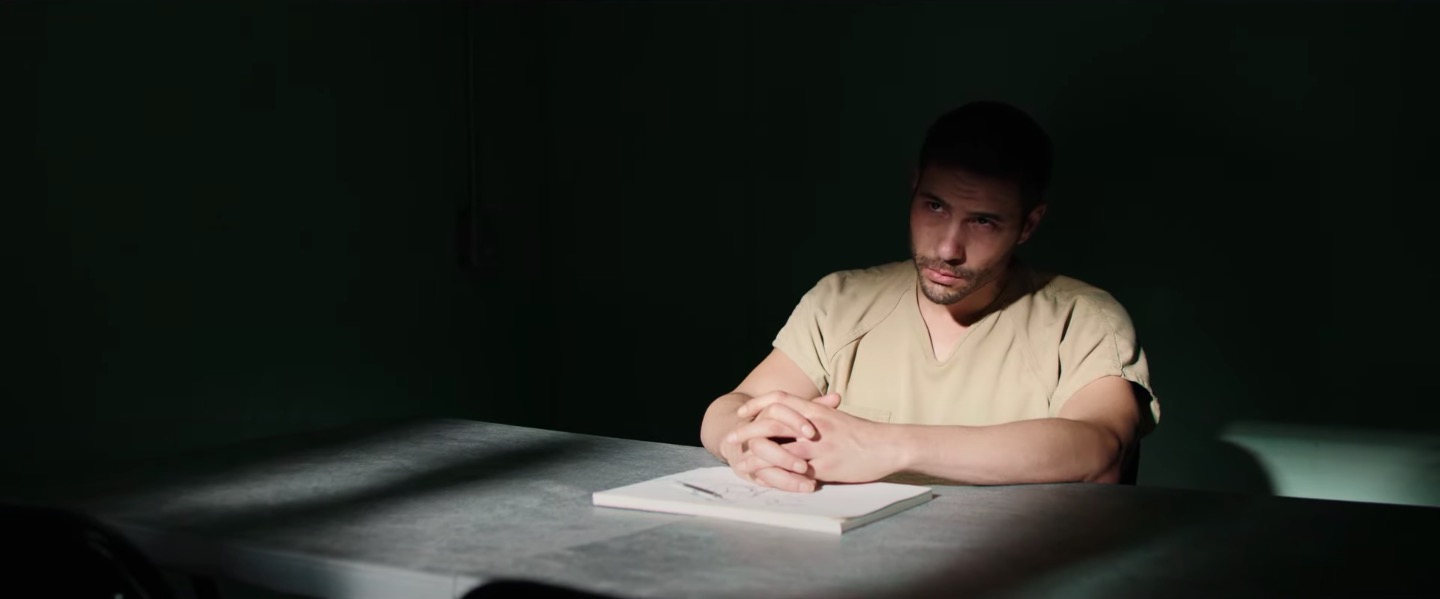What to Watch Verdict
Tahar Rahim’s performance is sorely underserved by the production it’s bound to.
Pros
- +
🧑🏻⚖️Tahar Rahim gives an excellent performance with the material at his disposal.
- +
🧑🏻⚖️Credit where it's due: Jodie Foster is trying.
Cons
- -
🧑🏻⚖️The muddled screenplay is bogged down by convention to the point of self-contradiction.
- -
🧑🏻⚖️The underlying cynicism of the production overshadows the heart of the story.
The Mauritanian is currently only available to watch in theaters (as of February 19, 2021). Due to the COVID-19 pandemic, we recommend checking it out at your local drive-in. If one isn’t available, please be sure to check out state and CDC guidelines before watching in an enclosed space.
“Who is this for?” might be the most overused shorthand for critics decrying bad films, but sometimes it is worth pondering just what sort of audience a film has in mind. In the case of The Mauritanian, it's initially difficult to pin down exactly to whom it wants to tell the story of Guantanamo Bay prisoner Mohamedou Ould Slahi. By now the infamous prison has become synonymous with extrajudicial imprisonment and torture, yet the film seems constrained by a format that assumes its audience will be as shocked as the attorneys it depicts at the revelation. Otherwise competent filmmaking is hampered by some bizarre structural choices, but once you realize why it was made and what its true goals are, the cynicism underlying this production becomes all the more apparent and sours the experience.
If Slahi’s name doesn’t immediately ring a bell, he was abducted from Mauritania and imprisoned by the United States in late 2001 on suspicion of being an Al Qaeda recruiter that brought one of the 9/11 hijackers into Bin Laden’s fold. The film primarily follows his story from 2005 to 2010, when defense attorney Nancy Hollander (Jodie Foster) and her associate Teri Duncan (Shailene Woodley) represent him pro bono in an effort to force the government to give him a court date and reveal the charges against him. Meanwhile, military prosecutor Stu Couch (Benedict Cumberbatch) is tasked with building the death penalty case against Slahi, only to find inconsistencies in the records of his detainment and the evidence against him.
When The Mauritanian focuses on Slahi himself (played by Tahar Rahim), it shines brightest, exploring the pain of a man who professes his innocence but fears the wrath of a prison that his attorneys ask him to burn down while he’s still inside. Much of his story is presented in flashbacks to the three years before Hollander took his case, where Rahim gives a genuinely moving performance that tracks the gradual breakdown of Slahi’s emotional and psychological defenses as government interrogation tactics become more and more extreme and he is coerced into admitting to terrorism.
However, the film’s editing and screenplay can’t seem to decide whether the flashbacks are being gradually revealed to Hollander, Duncan, and Couch through researching records and Slahi's testimony, or whether the flashbacks are meant to serve as a thematic parallel to current events, neither of which it fully commits to so that the cross-cutting across time feels jarring. In turn, this highlights just how vestigial the attorneys’ arcs are, since the audience is undoubtedly already aware of where the story is going and there is virtually no sense of legal tension built up that makes their journeys poignant. Foster’s interpretation of Hollander as a jaded litigator who cares more for the rule of law than her client’s innocence is standardly archetypal, while Woodley’s portrayal of Duncan’s naïve belief in Slahi’s innocence makes for a stock foil to Hollander but has very little agency of her own. The most complete arc of the three is Couch’s, whose disillusionment with his government is engaging even as Cumberbatch’s atrocious American Southern accent distracts, but it also feels like it could be happening in an entirely separate film, as Slahi is little more than a prop for this subplot.
So if the strongest parts of the film are spent with Slahi, and the parts of the film that pull us away from his presence are shallow, even if well-intentioned, then why the insistence on the distracting shell of a legal procedural in the first place, especially when that screentime could be better spent getting to know Slahi as an entity separate from his suffering? The bitter, cynical answer is that The Mauritanian is aiming to be an Important Awards Movie. Slahi’s story might be the impetus, but this film is primarily a vehicle for the associated creatives to shoot for prestige recognition, taking part in a film that prioritizes their empathetic contributions to cinema instead of the man it claims to empathize with.
That’s why the revelation of the inhumanity of Guantanamo is treated like a surprise for the audience; that’s the template by which cheap emotionality has garnered respect from awards bodies in the past, and the specter of Guantanamo is simultaneously enough politically removed from modernity to not ruffle too many feathers, while recent enough that its topicality hasn’t completely receded. This isn’t a movie made to tell Slahi’s story, even though it does so incidentally. This is a film made to advance the careers of the actors, screenwriters, director, and producers, as evidenced by distributor STX Entertainment’s push for the film to release in the thick of awards season even when the pandemic assuredly won’t make the film theatrically profitable.
The real shame here is that Slahi has an important story to tell, and Rahim’s performance is sorely underserved by the production it’s bound to. Every single moment of emotional and visual ingenuity is tied to his scenes, whether in flashback or the film’s present, and the constant and persistent distraction from that anchor leaves the film adrift in clichés and tedium. The more honest version of this film would have leaned on those strengths and known that the legal procedural aspect was just filler and fluff. Instead, we’re left with the knowledge that The Mauritanian is solely for awards voters, and the truly sad thing is that it probably won’t even register as a serious contender.
The Mauritanian will be released on February 19, 2021.
Leigh Monson has been a professional film critic and writer for six years, with bylines at Birth.Movies.Death., SlashFilm and Polygon. Attorney by day, cinephile by night and delicious snack by mid-afternoon, Leigh loves queer cinema and deconstructing genre tropes. If you like insights into recent films and love stupid puns, you can follow them on Twitter.












